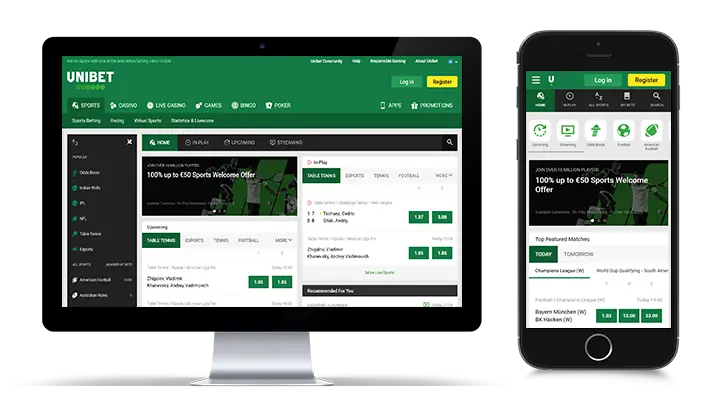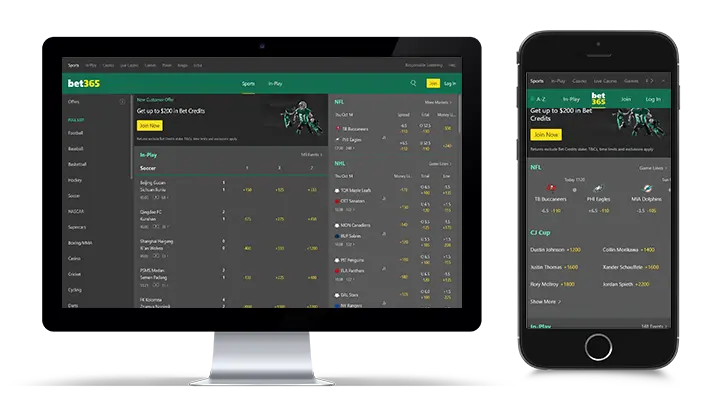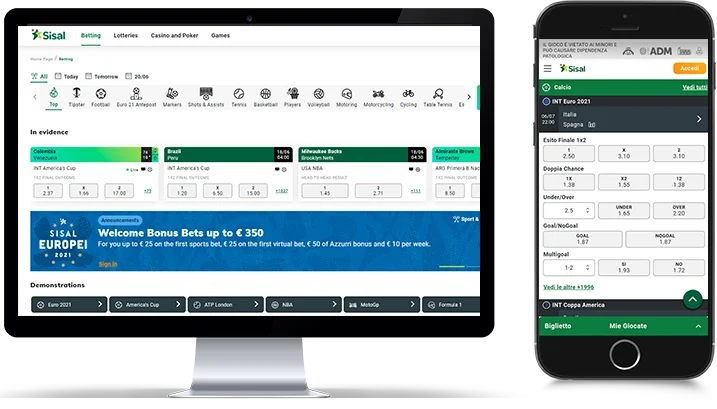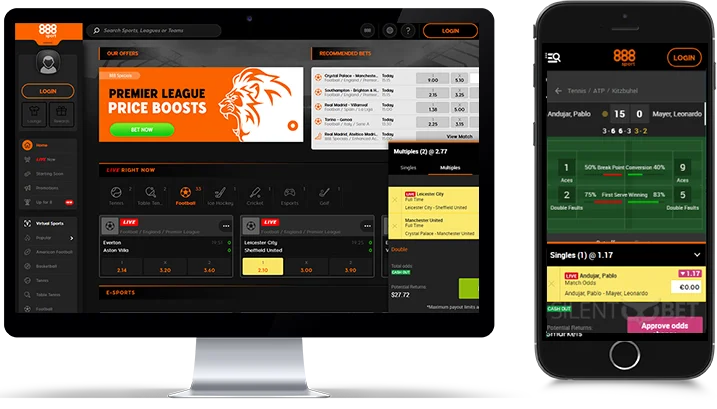Italy is a Mediterranean country with an undeniable influence on European history. To this day, it remains a center of culture, cuisine, science, and architecture. This is also the alleged birthplace of Europe’s first government-sanctioned gambling house, Venice’s Il Ridotto, which opened doors in 1638 and its building is still standing to this date. The very word “casino” originated from the Italian language.
Italians are keen on all types of wagering, with sports betting occupying a top spot in terms of popularity. Punting is an inseparable part of the fabric of Italians’ everyday lives.
The country has a great soccer tradition and is home to some of the best clubs in the world, including A.C. Milan, Juventus, and Lazio. Basketball, volleyball, tennis, rugby, cycling, and motorsports all enjoy huge popularity among the local betting population.
Online sports betting is legal and regulated on Italian soil since 2011. To offer such services to local punters, operators must apply for and obtain a valid license from the respective authoritative bodies in the country.
In this article, we take a closer look at all aspects of Italy’s sports betting industry. We introduce you to the country’s betting history and legislation, the payment methods Italian can use at online sportsbooks, the promotions they can take part in, and the odds format the locals prefer to use.
Legalities of Online Sports Betting in Italy
Historical Betting Overview
Gambling has been enjoying massive popularity on Italian soil ever since the days of the Roman Empire. Citizens would flock to the Colosseum to watch and wager on gladiator fights and chariot races.
Betting on such activities was rampant, with people putting all their material possessions or their freedom at stake. Some chariot drivers cheated in the conventional sense of the word. Others resorted to magic to ensure a favorable outcome.
The interesting thing here is that gambling was generally prohibited in Rome because the authorities were afraid of cheating through magic. Exceptions were made only for specific holiday periods. Of course, the prohibition did not prevent emperors from wagering.
The practice of punting on chariot races can be traced back to the foundation of Rome (the city), sometime around 753 BC. Chariots were usually pulled by four horses, but sometimes two to ten animals were used.
Such activities were initially associated with religious practices but this focus on religion shifted with time. People started gathering during holiday festivities for the sole purpose of watching the races and wagering on their outcomes.
By the 3rd century AD, the city of Rome had eight racetracks in its vicinity, the biggest one of which was the Circus Maximus accommodating ¼ million spectators. The slaves that drove the chariots and the horses were rented from the city’s most notable businessmen.
Ат the end of the Italian Renaissance, Venice became the first European city with an official mercantile gambling house. Il Ridotto’s doors were opened to the public in 1638. The entry was free. However, the stakes were so high that only the most affluent of Venetian citizens could afford to wager there.
There was a strict dress code that required everyone inside the building bar the dealers to wear Venetian masks. Many masked noblemen lost their fortunes to the house, which eventually led to the closing of the Il Ridotto in 1774.
Horse racing has a rich tradition in the boot-shaped country as well. Italy is home to the oldest horse race we know of today, Il Palio Siena. Modern soccer was brought to Turin toward the end of the 19th century by a textile merchant upon his return from England.
Then came the Internet in the late 20th century and with it, the need for introducing proper online betting regulations arose. The Italian authorities started drafting legislation to legalize online gambling sometime around 2006. In 2010, remote betting became legal, with operators receiving licenses from the local regulator.
What You Need to Know About Sports Betting in Italy
Italy is considered by many to be the true home of gambling. The world casino itself is of Italian origin, having been formed by the Italian word “casa” which means home. In other words, games of chance have, historically, enjoyed a great deal of popularity among punters from the Mediterranean country. For many years, Italians enjoyed a fairly liberal attitude towards this activity as far as the country’s legislation was concerned, but sadly Italy was one of the countries that outlawed most forms of gambling in the 20th century. Although this situation remained relatively stagnant for a while, the early 2010s brought upon some much-needed change.
In 2011 new laws were established that served to officially legalize and, most importantly, regulate the gambling sector. This served to make gambling a profitable industry in the country, and also to ensure that Italian punters are guaranteed to wager in safe conditions. This is very important as previously, Italian residents would still find ways to wager their money, but they were doing it illegally and were thus not eligible for compensation or assistance when something went wrong. Currently, any online gambling venue must be licensed by the Agenzia delle Dogane e dei Monopoli (ADM) which is also sometimes referred to as the Italian Gaming Authority or the Agency of Customs and Monopoly internationally.
Odds Format in Italy
Like most other countries in Continental Europe, Italy’s punters prefer to use decimal odds. This is no coincidence considering the simplicity this odds format offers. The decimal number reflects your exact return for every unit you wager.
For instance, if you back Juventus to win a game at odds of 1.35 and put €100 on the line, your potential return will amount to €135. The original €100 you bet are included, which is to say your net profits will be €35. You only have to multiply your wager by the decimal odds offered by the bookie.
But decimal odds have yet another advantage. They make it easy for punters to distinguish which side of the bet is the favorite and which one is the underdog. The side with the higher number is less likely to win. Otherwise, the bookie will not offer you a higher price for one such outcome.
And one last thing – this format is the most economical for punters who are keen on building parlays. Multi-selection wagers with decimals give bettors the truest and fairest odds. In turn, this increases the punter’s edge.
Italy Betting Laws and Legislation
Italy is one of the countries with a tougher stance on online betting. The only approved operators prior to 2010 that were authorized to offer sports betting were Italy’s National Olympic Committee (CONI) and the National Horse Breeders Enhancement Society (UNIRE).
Things took a turn for the better after the European Commission (EC) reviewed the legal gambling framework of the country. The EC established that the restrictions Italy imposes on foreign EU-licensed operators are in stark violation with the EU rules about the freedom of providing cross-border services.
Italy had no other option but to review its online betting legislation. The year 2007 saw the passage of the Decree of Liberalization, which rendered most forms of online gambling legal. This piece of legislation paved the way for the start of a new regulatory and licensing process.
A new set of rules came into force in March 2010, allowing offshore betting companies to launch sportsbooks and other gambling sites in Italy on condition they receive a proper license by Italian authorities.
License applications are reviewed by the Amministrazione Autonoma dei Monopoli di Stato (AAMS), which is incorporated under the Agency of Customs and Monopoly (Agenzia delle Dogane e dei Monopoli or ADM for short).
Italy Betting Restrictions
The local market quickly took off under the new laxer regime but we shall let statistics speak for themselves. In 2017, the Italian remote gambling sector generated an annual revenue of €9.9 billion, with bets on soccer having a very high contribution to this number.
This is a massive jump in revenue when compared to the figures the industry registered in 2016 (€7.5 billion) and 2015 (€5.5 billion). The year 2018 saw €1.48 billion in revenue from sports betting, with €643 million from the online sector alone.
The amendments in the local law allow for legal wagering across most verticals of the online betting sector. These include betting on sports and horse races, pari-mutuel wagering, virtual sports, in-play betting, and betting exchanges.
Restrictions are imposed on the advertising of gambling activities to Italian citizens. The measure aims at reducing the spread of problem gambling among the local population. First proposed in 2018, the new set of rules states that all forms of gambling advertising (direct or indirect) is to be banned.
As of 2019, betting operators who violate the restrictions will be sanctioned with six-figure amounts in financial penalties, with the minimum starting at €50,000. The trouble here is that many Italy-licensed sportsbooks have recruited Italian soccer teams for multi-year sponsorships and their deals continue to be in force after the implementation of the advertising ban.
Online Betting Regulatory Body in Italy
As we mentioned earlier, sports betting regulations in Italy are the responsibility of the Autonomous Administration of State Monopolies (AAMS). Foreign operators can service punters from the country as long as they obtain a valid license from this authoritative body. Those who lack such licenses are expected to block the access of Italians to their virtual betting products.
The ADM has published a comprehensive list of locally licensed sites Italian citizens can lawfully access. Operators who violate their licensing conditions are held liable under Italy’s laws. The licenses for sports betting have a validity of nine years.
The betting firms are also expected to take all the necessary precautions to prevent money laundering as well as to ensure gamblers are presented with tools that enable more responsible betting. It is obligatory to provide Italian customers with the option to self-exclude from the licensed websites.
Each licensee must contribute with taxes. The latter were increased from 22% to 24% for web-based sports betting operators. Landbased bookmaking shops are taxed at 20% based on their gross gambling yield.
Industry experts warn that this jump in taxes can lead to unfavorable consequences for the Italian betting market. One of the concerns is that the unauthorized gambling sector in the country might grow as local punters take their action to unlicensed sites.
Popular Betting Markets In Italy
With a rich history in both the fields of sports and gambling, it is no wonder that Italy currently boasts the second-largest gambling industry in Europe. Italian punters enjoy wagering on a variety of sports, especially when loyalty to local teams is concerned.
Football is always a passionate topic in any European country, but Italy takes it up a notch as football is the country’s national sport. Italians are, to put it simply, absolutely crazy about the game, and expressing loyalty to one’s favorite team is considered crucially important by many football fans there. Football bets provide the opportunity to do just that, and this is why football betting is often the most prominent sport in pretty much any bookmaker that provides its gambling services to Italians.
Horses have held an important role for gambling enthusiasts in the Mediterranean country ever since Roman times when chariot racing was all the rage among Italian punters. Conventional, by modern standards, horse racing dates back to the 6th century in Siena, Italy. It became more popular in the 14th century and in 1659, the festival Palio de Siena was officially established. It is the oldest horse racing event in the world and it continues to be celebrated to this day. As you might have guessed, the race does attract bettors, although wagering at the event is not officially recognized. Horse race betting is not exclusive to this event of course, as the practice is widely popular among Italians in general. Naturally, online wagers are well-liked too, with punters having the chance to place stakes on winner, forecast, and tricast bet variations.
Skiing is also favored among Italian bettors. The activity itself is enjoyed by many hobbyists thanks to Italy’s terrain, with ski resorts in the Alps and other mountain destinations enjoying a vast number of tourists annually. This widespread appreciation for the sport has influenced the tastes of non-skiers too, evident by the thousands of individuals who cheer for the Italian teams that participate in international competitions. Wagering on said competitions and races is enjoyed by many, and Italian residents can choose between many wagers, including match-up bets, podium finish wagers, and outrights.
Italy’s history with Volleyball dates back to WWI and continues to be enjoyed by the country’s population nowadays. Italy has enjoyed strong performances by its teams in international competitions, and Italy’s volleyball league Serie A1 is considered by many to be volleyball’s equivalent to the NBA. As you might expect, finding volleyball among the numerous sports categories on bookies that operate in Italy is easy, and you have many markets to choose from such as total points bets, tournament bets, and more.
| Popular Betting Markets in Italy Summary | |
|---|---|
| Sport | Leagues |
| Football | Serie A, Serie B, Serie C, Coppa Italia |
| Horse racing | Palio di Siena |
| Skiing | Italian Winter Sports Federation (ski) |
| Volleyball | Serie A1 |
Italy Online Betting Bonuses
Italy-friendly sportsbooks provide local punters with a great range of appealing promotional incentives, including welcome offers granted exclusively to newly registered members. Many operators give you the chance to start your wagering experience with a free bet.
Others treat punters to a welcome bonus when they deposit for the first time. Sometimes the offers are tailored specifically to the needs of Italian punters. The exact promotional conditions depend on what bookmaker you bet at.
You need to meet a certain deposit minimum to obtain a welcome bonus. As for the free bets, typically the requirement is to sign up and wager the designated minimum. You may have to use a promo code for the welcome offer in some cases.
Withdrawals are allowed only after you have cleared the rollover requirements attached to the offers. Usually, there are some restrictions on minimum odds and markets. Each offer has limited-time validity. How much time you have to use the bonus and cover its rollover depends on the respective sportsbook.
Customers who already hold accounts and have claimed their welcome bonuses can opt in for various ongoing incentives. Many bookies offer price boosts for bets on specific events and markets. This gives punters the opportunity to net bigger profits thanks to the enhanced odds.
Some offers are available for a limited time only. For example, if you predict the correct results for some of the biggest games over a specific weekend, the sportsbook might reward you with a withdrawable cash bonus. Cashbacks on losses and loyalty programs are available across all major sportsbooks that accept action from Italy.
Mobile Betting in Italy
Most Italy-friendly sportsbooks ensure ease of access across iOS and Android mobile devices. Italian smartphone users have a choice from a broad selection of markets, with soccer offering the most diversity to those who want to bet on the fly.
Some operators develop and launch dedicated applications for the above-mentioned operating systems. As a general rule, Android-compatible apps can be downloaded at no cost from the bookies’ websites.
Currently, punters from Italy cannot access gambling-related content in the Google Play Store. For the moment, this privilege is reserved solely for customers from the United Kingdom, France, and Ireland.
This is not the case with iOS-compatible gambling content. Such betting apps are permitted in the Apple Store but only on condition they are fully vetted and meet the legal obligations of the regulators in the countries they target.
Those who do not feel like installing software on their hand-held devices can open the sportsbooks in their mobile browsers. Betting sites friendly to customers from the Boot are optimized for use on the go via web apps that do not require additional downloads.
The mobile sportsbooks support the same features as their desktop counterparts. Italian punters can access them in their native language, make payments in their local EUR currency, and adjust the odds format to their preferred decimals.
Popular Betting Banking Methods in Italy
Top-tier Italian sportsbooks cater to customers from the country by providing them with a nice range of payment options they can deposit and withdraw with. The bigger the variety, the better for the punters, especially if they have any specific preferences.
Italians can make payments with debit and credit cards issued by Mastercard and Visa on condition they punt with a sportsbook that has a license from their local AAMS. Those who attempt to transfer money via cards to unauthorized websites risk having their transactions declined due to local legal restrictions.
Some bettors feel reluctant to disclose sensitive banking information or use their cards for gambling purposes. In that case, Italy-friendly sportsbooks enable them to choose from a variety of anonymous options including widespread digital wallets like Skrill, Neteller, and ecoPayz.
With these wallets, you need to set up an account and then top it up via a bank account, card, another wallet, or a bank transfer. When you make a payment to an online sportsbook, you only disclose the desired amount and the log-in credentials for your e-wallet account. Then you are redirected to the e-wallet system, which means the payment happens directly through its platform.
Paysafecard is also accepted but this method is unsuitable for professional punters because it allows for deposits of small amounts only. Another option is to use your local PostePay service but this, too, requires some kind of registration.
PostePay is a great solution for sports fans from the boot-shaped country. To implement this service, you are expected to have a local tax identification number. In essence, this is like a rechargeable debit card issued by the country’s postal services.
One important thing to keep in mind is that the official currency in Italy is the EUR because the country is a member state of the European Union.
Under local regulations, Italian punters who sign up at locally licensed sportsbooks are allowed to handle their payments only in this currency. The use of cryptocurrencies for such purposes is prohibited.
| Popular Banking Methods in Italy | |||||
|---|---|---|---|---|---|
| Payment Method | Fees | Deposit Limits | Deposit Times | Withdrawal Limits | Withdrawal Times |
| Visa | Free | €10-€50,000 | Instant | €10-€50,000 | 2-5 days |
| Mastercard | Free | €10-€50,000 | Instant | €10-€50,000 | 2-5 days |
| Maestro | Free | €10-€50,000 | Instant | €10-€50,000 | 2-5 days |
| Apple pay | Free | €5-€10,000 | Instant | €10-€30,000 | 2-5 days |
| Paypal | Free | €10-€5,000 | Instant | €10-€7,000 | 12-24 hours |
| Skrill | Free | €10-€10,000 | Instant | €10-€45,000 | 12-24 hours |
| Wire transfer | depends on the bank | €20-€100,000 | 2-5 days | €15-€100,000 | 2-5 days |
| Paysafecard | Free | €10-€1,000 | Instant | €10-€450 | up to 24 hours |
| Muchbetter | Free | €10-€20,000 | Instant | €10-€45,000 | 4 hours |
| Sofort | Free | €1-€2,000 | Instant | N/A | N/A |
What to Watch When Picking Italy Betting Site
First, it is always important to learn about the legal climate of your region of residence as far as gambling is concerned. When it comes to Italy, gambling is legalized and regulated. Any venue that seeks to offer its services to Italian punters must obtain a license from the Italian Agency of Customs and Monopoly (ADM).
You should also check the odds types offered at a venue, and ensure that the Decimal type is present. This is the odds type of choice in most European countries, and it is not difficult to see why considering it offers the most straightforward way to calculate how much potential payout a bet could result in.
Next, it is crucial to look through the catalog of the bookie. Even if your tastes are fairly liberal, it is a good idea to make sure that the most popular sports types are available to wager on at least. For those who have more specific tastes, searching for your favorite sport is necessary as wagering at a venue that does not offer your favorites as an option makes for a very unpleasant experience.
Last but not least, make sure to see what types of banking solutions customers can utilize. We all have our preferences, and it is simply a matter of convenience for a bookie to provide the easiest and fastest way for you to manage your finances.
 Italy Legislation
Italy Legislation









